The Steam Engine of the Mind
De-growth is not an option
On June 8, 2024, Jennifer Szalai of the New York Times published an article called “Shrink the Economy, Save the World?”
This line of reasoning is not new. Nor is it intelligent. The article goes on to espouse:
By demanding “capitalism’s end,” [Kohei] Saito is just getting started; what he calls for is not just degrowth, but “degrowth communism.”
Mind you, Saito maintains that the communism he’s proposing isn’t the top-down, coercive, undemocratic statism of the Soviet Union, but something that looks a lot more like communitarianism, with an emphasis on more local measures like mutual aid, citizens’ assemblies and “face-to-face community building.”
Szalai and Saito are literally saying the quiet part out loud by proclaiming that “real communism has never been tried.” This time, it won’t be like the top down, coercive, undemocratic statism of the Soviet Union, which led to more deaths than the Holocaust of National-Socialism in Germany.
Nothing New Under the Sun
Thomas Malthus was an English scholar and economist, and is best known for his theories on population growth and its relationship to resources, particularly food supply.
His most influential work, "An Essay on the Principle of Population" (1798), posited that while population grows geometrically (exponentially), food production increases only arithmetically (linearly).
This imbalance, he argued, would inevitably lead to a situation where the population would outstrip food supply, resulting in widespread famine, disease, and mortality, a scenario often referred to as a "Malthusian catastrophe.”
So what happened? Did we have a Malthusian catastrophe?
No. We had an unprecedented period of growth and prosperity. Why?
In a word: innovation.
The Industrial Revolution led to substantial increases in agricultural productivity and overall economic growth, which supported larger populations and improved living standards.
For instance, during the 19th and 20th centuries, mortality rates fell, and life expectancy increased significantly, largely due to better nutrition, health, sanitation, and medical advancements.
In short, Malthus predicted a catastrophe unless we shrunk our economies and the growth of populations.
But it was by way of technological advancement and growth that the opposite was achieved.
“Just Stop Oil”
The ideas proposed by Jennifer Szalai are dangerous, but that doesn’t mean they don’t have the right to be articulated.
They deserve to be published and discussed, if only to be thoroughly dismantled for the half baked predilections that they are.
Consider the following chart. There is truly no such thing that exists in the world today as a low energy, low growth, high standard of living country. Quality of life is directly correlated to energy consumption and growth.
So why can’t we “just stop oil”?
Because just as the steam engine and spinning jenny stymied Malthus’ dire predictions of catastrophe, so will all the different forms of artificial intelligence (LLMs and beyond) that are being built right now, becoming the steam engines of the mind.
The world system is cyclical, and if you look at the following chart, you’ll see that we are right near the inflection point; somewhere between “big wealth gap” and “printing money / revolution and wars”.
As of the latest data, inflation is still at 3%, which is above the Federal Reserve's target of 2%, but not excessively high.
The economy grew at an annualized rate of 1.6% in the first quarter of 2024, which is a slowdown from previous quarters. Unemployment remains low, for now, with interest rates higher for longer than anticipated.
With interest rates remaining higher for longer than originally anticipated, the US is adding $1 trillion to its national debt every 100 days.
This is such an obscene number, our minds aren’t well equipt to even understand how much money this even is.
What we need is a deflationary technology. What we need is an increase in productivity, so we can grow our way out of this spiraling debt cycle, and the looming stagflation that is peaking over the horizon.
What we need is a steam engine of the mind to thwart a Malthusian catastrophe.
China
The Chinese proverb "韬光养晦" (tāo guāng yǎng huì) means “to conceal one's strengths and bide one's time”, which is similar to the English idiom "hide your light under a bushel"
I am sure that the Westerners who believe in redistribution, Marxism, and de-growth are not bad people. I am sure they go home at night and kiss their children on the forehead, hold doors open for strangers, and say please and thank you.
In order to steel man their argument, I’m willing to give them the benefit of the doubt; that their motives truly are grounded in a benign desire to create a more just, equitable society, which preserves the ecological safety of the planet.
We can all agree that practices like deforestation are bad. And we can all agree that we should be moving away from fossil fuels and toward a more robust energy mix of fission, fusion, and renewables to protect the ecology of the planet.
But these solutions require more innovation. More growth. More smart people contributing their time and talents from all over the world to work on these consequential projects. We need to grow our economies to achieve these goals. Not shrink them.
Let’s just say for a moment the US and Europe decides to take the de-growth approach. We shrink our economies, redistribute wealth, and focus exclusively on trying to preserve our ecological future and current quality of life. What happens?
I’m not sure, but it would be logical to assume that life would return to the way it was before the use of fossil fuels. Namely: worse than it is now for everyone involved.
Secondly, we know for a fact that China is not interested in any kind of de-growth narrative at all. If anything, they have fully embraced e/acc and are full steam ahead on artificial intelligence and energy innovation.
Spark v3.5: Developed by iFlytek, is claimed to outperform GPT-4 Turbo in language capabilities, math, and coding. It's also reported to be marginally better at multimodal tasks.
Ernie Bot 4.0: Created by Baidu, is ranked as one of the best-performing AI models in China according to an assessment by Tsinghua University.
GLM-4: Developed by Zhipu AI, is also considered one of the top-performing Chinese AI models, alongside Ernie Bot 4.0.
Yi-Large: Developed by 01.AI, and founded by AI expert Kai-Fu Lee, is claimed to have surpassed GPT-4 in reasoning and five other aspects across several benchmarks.
SenseNova 5.0: Created by SenseTime, is reported to outperform GPT-4 Turbo and Llama 3 70B Instruct across all benchmarks, including MMLU, knowledge, language understanding and writing, coding, and math
Consider the following chart:
This chart troubles me for a variety of reasons.
If nuclear fission was the technology that shaped the power dynamics of the 20th century, artificial intelligence will be the technology that shapes the 21st.
Currently, the biggest bottleneck toward training better models is compute. We need more, better, and faster GPU’s and chips for the training and inference of LLMs and other types of artificial intelligence (such as self driving and robotics).
But when we solve the compute crunch, the next step is solving the data wall.
The entire open internet has already been ingested by every AI foundational model worth its salt.
The next step is getting more, and higher quality data. This data could come from data foundries like Scale and E2F, or from subject matter experts in a variety of fields.
And as Yann LeCun points out, the average 4 year old human child has ingested more data than any LLM currently operating today.
I wrote about the future of AI in a recent article so won’t belabor the point. Feel free to check it out → here.
But once we solve both the compute and data crisis, the next looming problem is energy. The energy needed to run these models is going to be enormous.
The energy needed to make the transition to electric cars and the data farms to support these compute clusters, is going to be exponentially more than what we can currently support.
And if we choose not to compete, if we choose de-growth, China becomes the new hegemon of the world system.
China then makes the rules, shapes the world economy, and wields economic and militaristic might for the next century.
Which is why when people say we need to “just stop oil” or we need to just “shrink the economy to save the world” I think they are well meaning people with incredibly short sighted ideas, to put it politely.
The wealth, relative peace, and prosperity we all enjoy today (not just Western nations), was not earned by our generation, or even the generation before.
It was given to us as an inheritance by the hard work and bravery of those long dead.
We would do well to remember that instead of wallowing in some kind of misguided self-flagellation that leads to a future no one wants to live though.


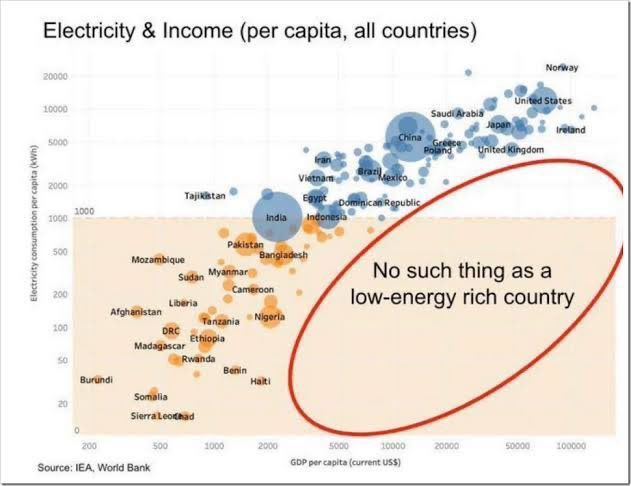

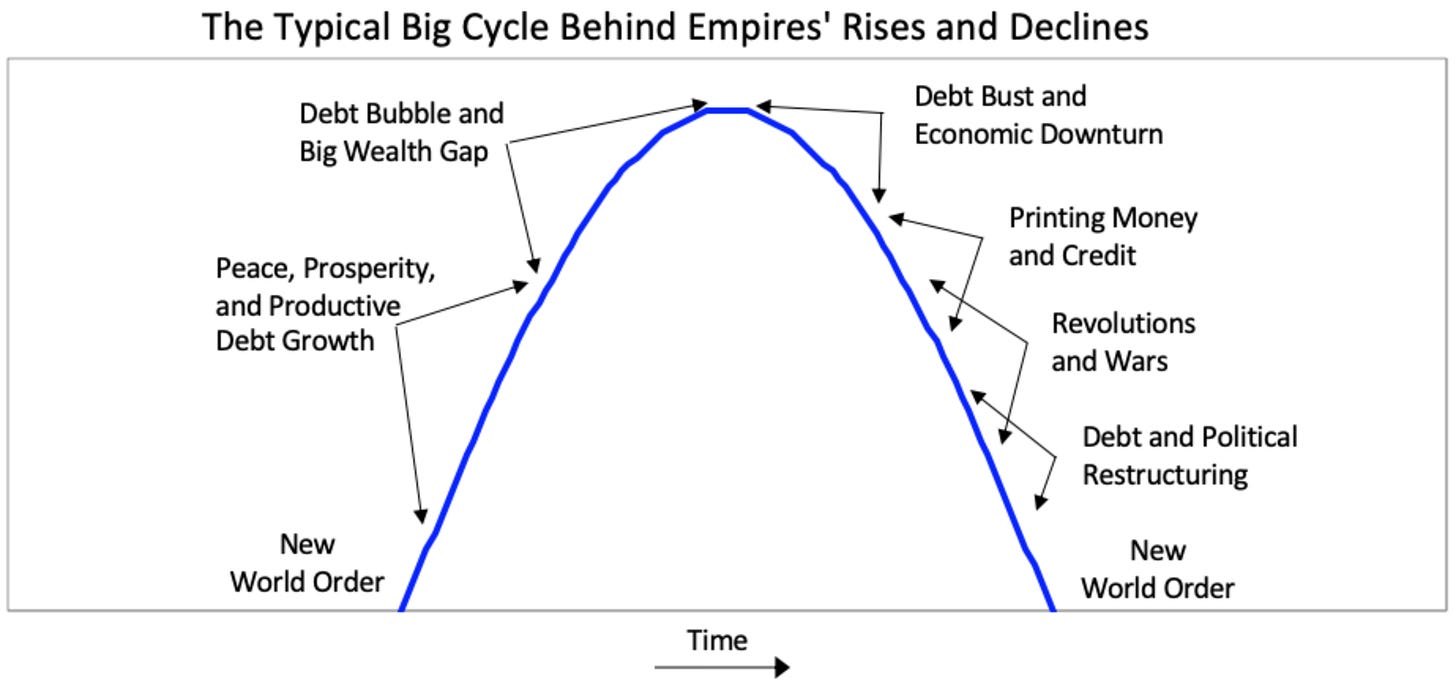
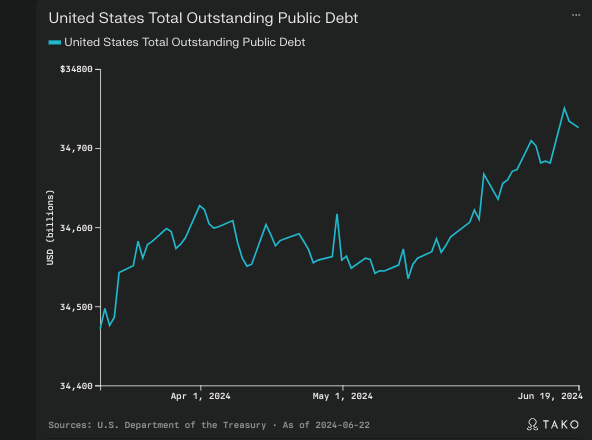
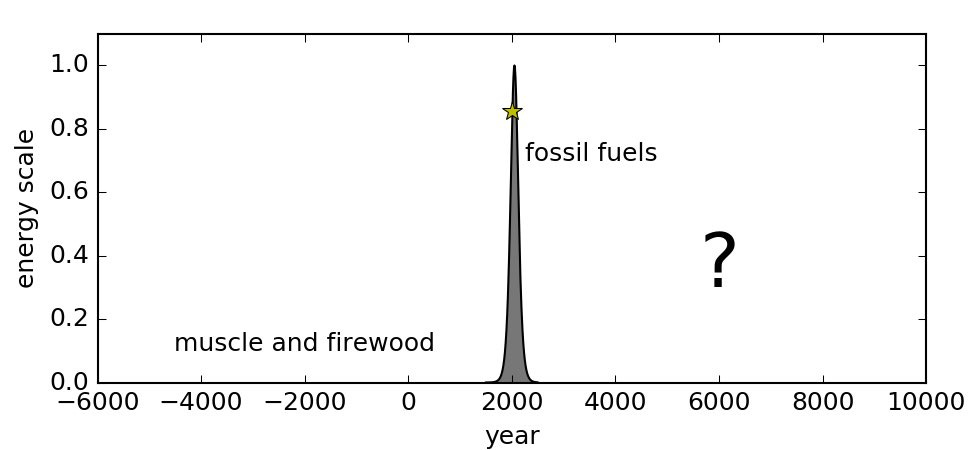
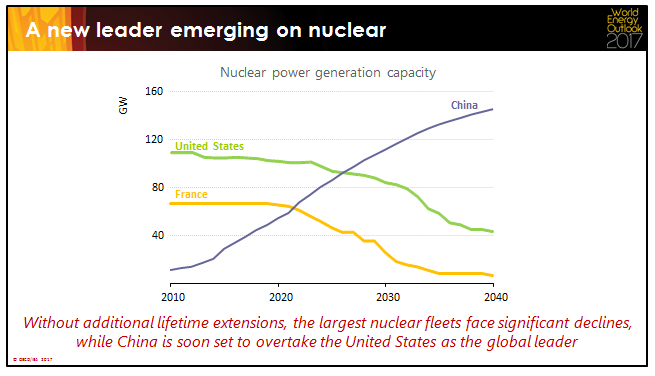
These people drive me crazy. While I have absolutely no doubt in the validity of anthropogenic climate change and believe we should wholeheartedly champion renewable energy, we cannot “stop oil” without going back to the Stone Age.
Even worse, just “stopping” oil would mean the deaths of billions of people from famine as oil is needed to produce and transport fertilize, run tractors…etc.
Their antics are little more than performance art, virtue-signalling: a waste of time.
Our efforts should be focused on accelerating progress and growth, but this is a something that does work. We have already traversed several energy revolutions, from wood—>coal—>oil—>gas, each step on that energy ladder was 1) more efficient and 2) produced fewer pollutants and 3) released less CO2: https://www.lianeon.org/p/how-growth-can-protect-the-environment
We are already on the right path, CO2 emissions are falling in wealthy countries, we just need more countries to be wealthy!
We need more intelligent looks at the incredible advancements of nuclear over the decades and stop fueling the fear!
https://www.polymathicbeing.com/p/nuclear-meltdown